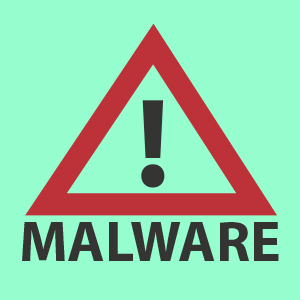What is Malware Detection – is it important?




 (1 votes, average: 5.00 out of 5)
(1 votes, average: 5.00 out of 5)Malware detection is vital with malware’s prevalence on the Internet because it functions as an early warning system for the computer’s secure with respect to malware and cyber-attacks. It keeps hackers out of the computer and prevents the data from getting compromised.
So what is malware detection exactly?

It is important to know what is malware detection created for first before we talk about malware detection further.
Malware Detection is created specifically against malware. What is Malware?
Malware
Malware is a harmful software that pretends to be a legitimate program to infiltrate the computer. It is installed in different ways, but the most common are a phishing email, fake installer, infected attachment, and phishing links.
Hackers make malware presentable to convince users into installing them. Often, the users are unaware that the program is malware because it looks legitimate. Basically, that’s how malware gets installed on the computer.
Once installed, malware hides in different folders in the computer. If it’s an advanced type of malware, it can directly access the operating system. Then it starts to encrypt files and record personal information.
To detect malware, the process malware detection is created.
What is Malware Detection
Malware detection is the process of scanning the computer and files to detect malware. It is effective at detecting malware because it involves multiple tools and approaches. It’s not a one-way process, it’s actually quite complex. The good thing is malware detection and removal take less than 50 seconds only.
How is it done? It is done using the following:
Signature-Based Detection
Signature-Based Detection uses virus codes to identify malware. Malware carries a unique code that is used to identify it. When a file reaches the computer, the malware scanner collects the code and sends it to a cloud-based database.
The database has a vast collection of virus codes. If the file code is found in the list, the database returns with a verdict that the file is malware. The anti malware denies the file from the computer and deletes it.
If there’s a new malware discovered, its code is added to the list.
Heuristic Analysis
Heuristics Analysis works differently. If Signature-Based Detection relies on virus codes, Heuristics applies rules to identify malware. It has established certain rules that files cannot violate.
Some of the possible rules are:
Camera manipulation is prohibited
Direct access to the hard drive is not allowed
Heuristics has also set a numerical value that determines if the file is suspicious. If the score meets the assigned point, it is flagged as a threat.
Sandbox
Sandbox is a protected cell within the computer the anti malware creates to contain any suspicious or unknown file. This prevents malware infection because the file runs without infecting the other programs in the computer.
Inside the sandbox, the file is observed and analyzed further to determine if it’s harmful or safe. If the file is legit, it is released, but if it’s malicious it is denied.
Removal Tools
Lastly, when the threat is identified, it must be deleted from the computer. Here come the Removal Tools that eliminate the malware immediately. Now, the malicious file is deleted from the computer; the files and important information are perfectly safe.
The malware detection process ends here. The process starts every time a new file enters the computer. This must be done to prevent malware infection.
Now that we know what is malware detection. How do we do it on the computer?
Anti Malware Software
Malware Detection is done using an anti malware software. The anti malware is a program that is designed to fight against malware. It protects the computer and ensures that it is malware free by scanning it regularly.
A computer without an anti malware software is vulnerable to malware attack. Hackers target computers and networks with a poor security feature. If malware sometimes gets past a security software, how much more a computer without an anti malware installed?
Different types of malware are spread on the Internet. The moment the user accesses the Internet, the risk of getting malware on the computer is there. Nowadays, it is important to keep the computer security to avoid data loss.
Many anti malware software are available for download for free. Just find a trustworthy security software that will defend your computer at all times. Just download the file and follow the prompts on screen to install it on the computer.
Are you ready to download anti malware software for your computer? Click here to check out the best anti malware software.
Xcitium Advanced Endpoint Protection is one of the best anti malware software that protects the endpoint devices from malware. It is ideal for personal and business computers.
learn more about endpoint protection.